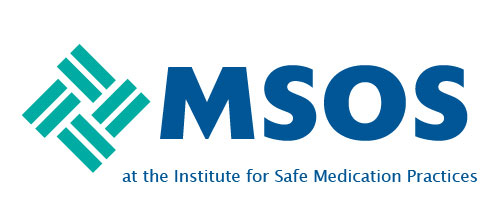Resource Page
This communication is part of the Communications Pilot to Enhance the Medical Device Recall Program
Aspiration System Correction: Calyxo Updates Use Instructions for CVAC Aspiration Systems
This communication is part of the Communications Pilot to Enhance the Medical Device Recall Program
Infusion Pump Recall: Fresenius Kabi Removes Ivenix Large Volume Pumps
Some Ivenix LVP Primary Administration Sets were assembled with the drip chamber and Luer Lock components in reversed positions, potentially leading to clinical complications
Custom Surgical Pack Recall: Alcon Removes Custom Pak Ophthalmic Procedure Packs
Alcon recalls Custom Pak Ophthalmic Procedure Packs due to incomplete seals that may compromise sterility. Check lot numbers, recall instructions.
Intravascular Administration Set Recall: ICU Medical Removes IV Gravity Burette Set
ICU Medical removes IV Gravity Burette Set due to the burette component missing an internal shut-off valve intended to stop fluid flow.
Anesthesia System Correction: GE HealthCare Updates Use Instructions for CareStation Anesthesia Systems
GE HealthCare issues updated use instructions for certain Carestation 600 and 700 series Anesthesia Systems
Continuous Glucose Monitoring Software Correction: Dexcom Issues Correction for Dexcom G6 and G6 Pro Software
A defect was discovered in the Dexcom G6 and G6 Pro Android US CGM App version 1.15.0 that may cause the app to shut down unexpectedly.
Gold Star Distribution Inc., Issues Recall of Certain FDA-Regulated Products in Three States Including Drugs, Devices, Cosmetics, Human Foods, and Pet Foods
Gold Star Distribution, Inc. (Gold Star or “the Company”) is recalling all FDA regulated products listed in this press release due to the presence of rodent and avian contamination.
Catheter Mount Recall: Draeger Removes ErgoStar Catheter Mounts
Drager is removing affected ErgoStar Cather Mounts due to cracks in the hose.
Endovascular Graft Recall: Cook Medical Removes Zenith Alpha 2 Thoracic Endovascular Graft
Cook Medical is removing certain ZENITH ALPHA 2 THORACIC ENDOVASCULAR GRAFT proximal components because PTFE scrapings may enter the stent graft during deployment.
System Correction: IMPRIS Imaging Inc Issues Correction for IMRIS Neuro III-SV
IMPRIS corrects IMRIS Neuro III-SV models due to the potential of ice blockage in the helium venting pipe
MRI System Correction: Siemens Healthineers Issues Correction for 3 Tesla MRI Systems
Siemens Healthineers is correcting 3 Tesla MRI systems including MAGNETOM and BioGraph mMR due to the potential for ice blockage in the magnet venting system
Early Alert: Convenience Kit Needle Issue from Integra LifeSciences
Integra LifeSciences is removing certain lots of Microsensor and Cerelink ICP Kits with potential corrosion stains on the included Tuohy Needle.
Infusion Pump Correction: Baxter Issues Correction for Novum IQ Large Volume Pumps
This communication is part of the Communications Pilot to Enhance the Medical Device Recall Program
Handelnine Global Limited d/b/a as Navafresh Issues Nationwide Recall of Rheumacare Capsules by Virgo UAP Pharma Pvt. Ltd. (Virgo), Due to Elevated Lead Levels
Handelnine Global Limited d/b/a Navafresh is voluntarily recalling Lot Numbers CAM040 & CALO79-N of Rheumacare Capsules by Virgo UAP Pharma Pvt. Ltd. (Virgo) to the consumer level. In test conducted by the Food and Drug Administration the product has been found to contain lead at levels up to 11,100
Microbore Extension Set Recall: B. Braun Medical Inc. Removes Microbore Extension Sets
This communication is part of the Communications Pilot to Enhance the Medical Device Recall Program
Cardiac Cannula Recall: Medtronic Removes DLP Left Heart Vent Catheter
This communication is part of the Communications Pilot to Enhance the Medical Device Recall Program
Blood Pump Controller Correction: Abiomed Updates Use Instructions for Automated Impella Controllers
This communication is part of the Communications Pilot to Enhance the Medical Device Recall Program
Update on the Safety of Andexxa by AstraZeneca: FDA Safety Communication
Since approval, the FDA has received postmarketing safety data on thromboembolic events, including serious and fatal outcomes, in patients treated with Andexxa (coagulation factor Xa (recombinant), inactivated-zhzo). Based on available data, the serious risks including the increase in thromboembolic
Olympus Announces Voluntary Corrective Action for the Single-Use Ligating Device
Center Valley, Pa., (December 5, 2025)-Olympus Corporation today announced a voluntary medical device corrective action for its Single-Use Ligating Device ("Polyloop") following identification of a potential safety issue.
